Since the release of the International Competitiveness Strategy last fall, I’ve been repeating one phrase over and over again like it’s my job (it is): “If 40% of all jobs in Washington state are tied to international trade, then all of our policy & investment decisions should be focused on increasing our state’s international competitiveness.” I’ve taken to calling it “the WCIT rule of policy analysis.” And so, you can imagine my concern when I saw that the Governor’s budget proposal included a change to the B&O rate for international trade activities.
There are two problems areas. First is #10 on the list of proposed tax increases, which “amends the current exemption from business and occupation (B&O) tax and retail sales tax for imports and exports by companies with sufficient nexus in the state so that it applies only to exports and to imports of aerospace components.” But even more concerning is #4, which would “reduce the value of preferential B&O tax rates.” Let’s discuss.
I obviously need to start with the usual caveats: 1) governing is all about making tough policy decisions that inevitably involve tradeoffs, 2) increased funding for education is also key to the development of an internationally competitive state (assuming that increased funding also comes with reforms that ensure a maximally effective education system), and 3) everyone thinks that their tax rates are the ones that can’t be touched…I’m sure that Lew McMurran at WTIA is writing a very similar blog post right now on the proposal to increase taxes on “custom software.” But a key part of the policy analysis for any decision like this in the elasticity of that industry to absorb increased costs. Sorry to go all Economics 101 on you, but the point being that certain industries are much more price sensitive than others.
In particular, the change in “preferential rates” would significantly change the cost structure for trade in a potentially significant detrimental way. The result of this rate change would be a 113% increase in the B&O tax on stevedoring services, freight forwarders, customs brokers and the like. In a very real way, this would be a direct tax on trade.
We here at the State of Trade blog spend a lot of time discussing port competitiveness and making Washington a great place from which to engage in global business. A big part of that story is that – if we’re not the best place from which to engage in global business and/or not the best ports to ship through – we no longer will be. There are plenty of other ports to use to import and export cargo, including the increasingly competitive Port of Prince Prince Rupert. And there are plenty of other places that would welcome companies that leverage a global supply chain; as we showed in the International Competitiveness Strategy, there are huge benefits to our state’s economy from manufacturing, retail and apparel companies based here that use imports as part of their business model. It seems to me that the last thing we’d want to do is make them feel unwelcome or that Washington isn’t interested in helping them grow jobs through increased global engagement.
As I mentioned, I’m sure that everyone believes that their tax rates are inviolable. But a tax increase on trade is targeting our state’s single largest economic driver in a way that I fear could have much worse costs than benefits. As the state legislature considers the Governor’s budget proposal and their own, I hope that they keep the WCIT rule of policy analysis in mind…

